EFInA Hosts 9th A2F Stakeholder Engagement Workshop to Shape 2025 Financial Inclusion Measurement Strategy
Lagos, Nigeria – August 26, 2025 – Enhancing Financial Inclusion and Advancement (EFInA), a financial sector deepening organisation in Nigeria, convened diverse key stakeholders for the 9th wave of its Access to Financial Services in Nigeria (A2F) stakeholder consultation workshop.
The workshop brought together regulators, financial service providers (FSPs), development partners, researchers, state actors, and civil society representatives to secure their buy-in for the analytical plan and thematic priorities of the survey, gather their insights on the draft questionnaire, and align on the key learning questions for deeper thematic analysis.
Delivering the welcome address, Foyinsolami Akinjayeju, EFInA’s Chief Executive Officer, stressed that the goal of this round of the A2F Survey goes beyond measuring access to financial services; it is about accelerating progress. “This A2F round is not just another survey. It is a compass for where we need to go next. We want to understand quality, usage, and the outcomes of financial services use.” She further highlighted that the strength of the A2F Survey lies in the collective effort of all stakeholders to ensure it delivers value across the ecosystem.
Giving a goodwill message, Dr. Nurudeen Abubakar Zauro, Technical Adviser on Financial and Economic Inclusion to the Presidency, underscored that the A2F Survey is a critical national resource providing evidence that informs key decisions at the highest policy level. He noted, “For us as a country, the A2F Report is a very important dataset because EFInA holds the evidence that informs many critical decisions at the national level.”
Chioma Nwaiwu, Research Manager at EFInA, explained that the goals of this survey round include strengthening the financial–economic inclusion link for MSMEs, agricultural and informal workers; introducing more robust tracking on financial health, fraud prevention, and trust in financial services; and finally, ensuring sustainability through ecosystem ownership and a public–private partnership model. She added that innovations such as the Consumer Protection Module and Enhanced Customer Segmentation will be adopted to ensure the survey’s findings remain a critical resource for policy design and market innovation.
The workshop featured a carefully curated multi-lensed panel session to reflect on the effectiveness and utilisation of the A2F in driving inclusive finance and financial resilience thus far. Diverse yet reinforcing perspectives from the panellists—Mr. Blessing Oladeji, Chief Executive Officer, Octave Analytics; Kalu Aja, renowned thought leader and financial literacy advocate; and Mr. Ajibade Laolu-Adewale, Chairman, Committee of e-Business Industry Heads (CeBIH)—highlight how previous A2F Surveys have shaped their work.
Summing up the shared view, Mr. Ajibade Laolu-Adewale, Chairman, CeBIH, called for greater support and collaboration towards the success of the A2F Survey. “The A2F report is for everyone across the financial ecosystem.The federal government, state governments, the banking industry, the Body of Bank CEOs, and even the telecom industry must intentionally adopt the A2F report to promote it and make it bigger.”
Another key part of the workshop was the breakout sessions, which gave participants the opportunity to review the survey questions in detail and share feedback based on their experiences and needs. These discussions ensure that the A2F Survey remains relevant and useful for the diverse actors across Nigeria’s financial inclusion ecosystem.
In her closing remarks, Prof. Janice Olawoye – Board Director at EFInA, emphasised the need for broader stakeholder support to enable EFInA to expand its sampling and conduct deeper dives, ensuring the data remains robust and representative. Acknowledging Nigeria’s diversity, she observed that while it may present challenges, it also offers opportunities to design innovative, tailored solutions, particularly for the most vulnerable groups.
Reinforcing how invaluable the A2F Survey has been for the financial services ecosystem, Chinasa Collins Ogbuo, Advocacy Lead at EFInA, stated, “The A2F Survey has served as Nigeria’s most authoritative source of data on financial inclusion, supporting multi-stakeholders in developing inclusive, evidence-driven, and people-focused interventions.”
The survey provides nationally representative, credible data, which has become a trusted resource for financial service providers, development organisations, government bodies, policymakers, and regulators.



